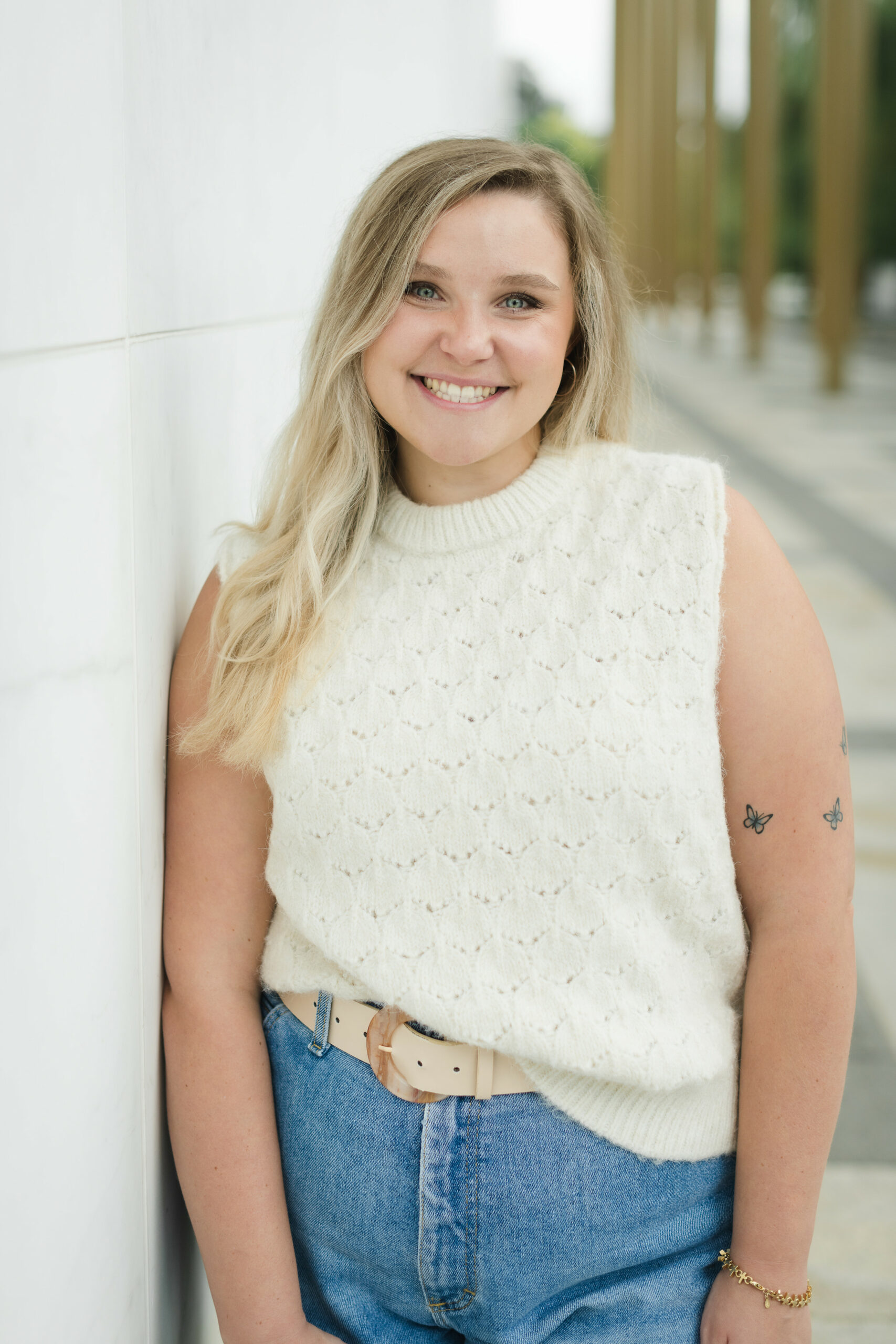As an eating disorder dietitian, my work has been a constant source of growth and learning. One lesson that has changed my approach is the impact of embracing uncomfortable emotions as a clinician. Keep reading to learn 3 self-reflection questions eating disorders clinicians can ask themselves.
Think about how many times you’ve encouraged your clients to sit with challenging emotions, question their black-and-white thinking, or redefine their idea of progress. It’s something we understand to be healing. We often remind our clients that recovery isn’t a straightforward path, but as clinicians, we may not have been taught how to navigate the ups and downs of this journey ourselves. It’s important that we challenge the internalized beliefs we hold about what recovery “should” or “should not” look like for our clients.
In this guide, we’ll explore questions that invite you to engage in self-reflection as an eating disorder clinician. Through these, we can deepen our understanding, empathy, and ultimately provide even better care to those we support on their path to recovery.
Below are questions that you can use to start this conversation with yourself and others.
1. Do I have an idea of what recovery “should” or “should not” look like for someone?
Using words such as “compliant” and “non-compliant” when describing someone’s progress in recovery implies judgment. It reinforces a hierarchical dynamic where the clinician holds the power to determine what is right or wrong in the recovery process. This can contribute to feelings of shame, guilt, and failure for individuals struggling with an eating disorder.
Consider this: Instead of using compliance-related language, it is more helpful and empowering to focus on collaborative and person-centered approaches in eating disorder recovery.
2. What makes me uncomfortable when a client is not making “progress?”
You may have certain expectations or goals for your clients’ treatment and when clients do not meet these expectations, it can create a sense of unease or frustration. It is important that we do not enter sessions with our own agenda. Rather, sessions should be client-led and center around what they would like to get out of your session.
Recognizing and understanding your discomfort can help you provide more effective support. It is natural to want your clients to meet the goals they set for themself and when progress seems limited, it may trigger your own fears of failure or inadequacy as a clinician.
Consider this: Regular supervision and consultation with colleagues and experts in the field can provide valuable guidance and support in navigating biases and addressing potential blind spots. Courage to Nourish offers supervision for clinicians from certified eating disorder specialists.
3. What do I mean when I say that I am meeting a client “where they are at?”
Another common phrase we hear is “meeting clients where they are at” in recovery. Allyson Inex Ford, an eating disorder and OCD therapist talks about how although we may mean well by saying this, it can also still be connected to our own agenda, rather than our clients. By meeting clients truly where they are at, we create a trusting and safe environment for them, says Inex Ford.
Consider this: Have ongoing check-ins with your clients about their personal goals and what they may need from your sessions. It may surprise you!
Final Thoughts on Self-Reflection Questions for Eating Disorder Clinician
Thank you for reading this resource on 3 self-reflection questions for eating disorder therapists. As eating disorder clinicians, it is essential to recognize the importance of not having our own agenda and learning to sit with our own discomfort when working with clients. By letting go of personal biases, beliefs, and expectations, we create a space that is truly client-centered and conducive to healing. Let us remember that our role is to facilitate, empower, and accompany our clients on their path to healing, respecting their autonomy and honoring their unique journeys.
Additional Resources: www.eatingdisorderocdtherapy.com/
Contact Us
Courage to Nourish is a group of eating disorder specialized dietitians. We have in person locations in Alexandria, Virginia, Columbia, Maryland. and College Park, Maryland. We offer virtual services across the state of Virginia, Washington DC, Pennsylvania, and Colorado. We offer individual nutrition therapy. As well as support groups. We would love to guide you in building a better relationship with food.
Emilee Young, RD, LD, is an eating disorder dietitian who serves Alexandria, VA, Richmond, VA, Charlottesville, VA, Norfolk, VA, Virginia Beach, VA, and Roanoke, VA. She provides in person services in our Alexandria, VA office and virtual services elsewhere. Emilee also sees clients who live in Maryland and DC.
Contact us for more information. And to schedule a discovery call. Also, sign up for our client or clinician newsletter!
Take one of our eating disorder quizzes:

I am a Registered Dietitian dedicated to helping those in recovery. I enjoy helping individuals work towards body acceptance and find food freedom. I am a fat-positive and anti-diet dietitian practicing from an intuitive eating lens. I enjoy working with folks who struggle with binge eating disorder (BED). I serve clients virtually and in person throughout DC and Maryland. Growing up in Virginia, I am passionate about supporting clients throughout the greater areas of Richmond, Virginia Beach, Charlottesville, and Roanoke.


